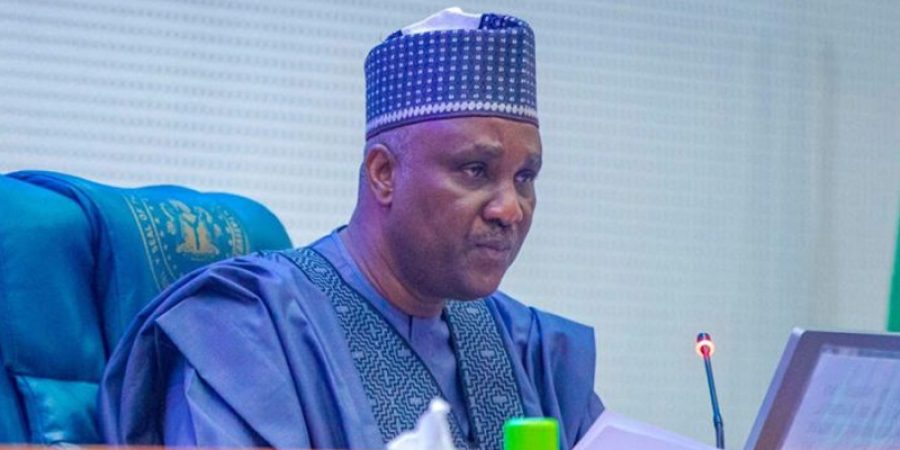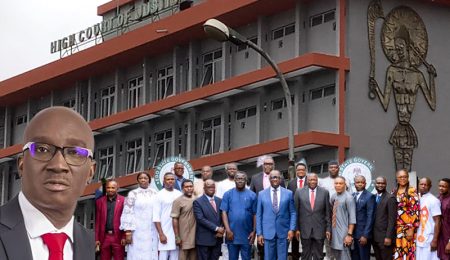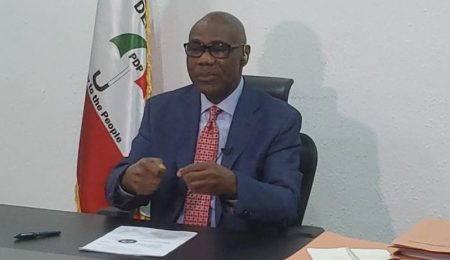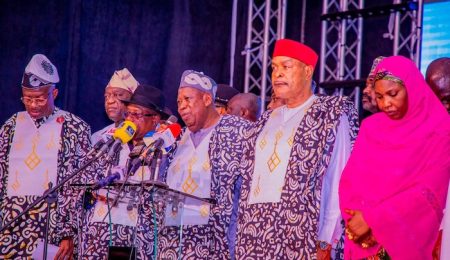Tajudeen Abbas, Speaker of the House of Representatives, has criticised the conduct of local government elections across Nigeria, describing them as “disgraceful” and a mockery of democratic principles. Abbas shared these concerns on Monday at the National Dialogue on Local Government and Constitution Amendment in Abuja.
Represented by his deputy, Benjamin Kalu, Abbas emphasised the critical role of local governments in delivering essential services, fostering community development, and amplifying citizens’ voices. He asserted that for these councils to function effectively, they require autonomy to address the needs of their communities promptly and independently.
“One of the most pressing issues we must deal with is the poor quality of elections into local government councils across our states,” he said. “This situation not only undermines the very essence of democracy but also raises serious concerns about the integrity and functionality of our local governance structures.”
He condemned the lack of competitiveness in local government elections, where ruling parties often sweep all positions, and described such outcomes as a significant threat to democracy. “It fosters an environment where undesirable elements infiltrate these councils, often lacking the necessary capacity and vision to govern effectively,” Abbas said.
Abbas also criticised the excessive control of local governments by state governments and political godfathers, which he argued reduces local councils to mere appendages. He praised the recent Supreme Court judgment mandating elections into councils and direct fund disbursements as a step toward strengthening local governance autonomy.
“This landmark decision is a testament to our collective commitment to uphold democratic principles at all levels of governance,” he remarked. However, Abbas stressed that comprehensive reforms are still urgently needed, especially to ensure transparency, fairness, and openness in local council elections.
He called for collaboration with state governors and houses of assembly, urging them to support reforms that would empower local governments. “A strengthened local government system would relieve the states of unnecessary burdens and lead to grassroots development,” he added.
Abbas also advocated for constitutional amendments to address financial and administrative challenges faced by local governments. He highlighted the need for greater financial autonomy, ensuring councils receive federal allocations directly, without excessive state interference.
He then noted that inadequate funding remains one of the most significant obstacles to local government administration, adding that budgetary constraints limit their capacity to provide essential services like education, healthcare, infrastructure, and sanitation.
Abbas joined voices calling for a review of the role of State Independent Electoral Commissions (SIECs), often accused of bias in favour of ruling parties during local elections. Echoing past criticisms, including those from Mike Igini, a former resident electoral commissioner, he said local elections have been reduced to “coronation ceremonies.”
In March, Lateef Fagbemi, Attorney-General of the Federation, recommended transferring SIEC powers to the Independent National Electoral Commission (INEC), a proposal Abbas hinted might be necessary to restore credibility to local government polls.
Abbas concluded by urging stakeholders to push for reforms that would empower local governments to fulfil their mandate and contribute meaningfully to national development.
Follow us on:



